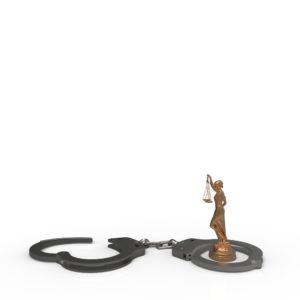BAC under 0.08%? You May Still be Charged with DWI in NJ
Arrested for Drunk Driving under the Limit?

If you or someone you love has been arrested for drinking and driving under the limit, contact our dedicated team of DWI defense lawyers today at (908) 336-5008 for a cost-free consultation. We have been defending clients facing DUI charges in Dover, Denville, Chatham, Washington Township, Morris Plains, and other towns in Morris County for years. Let us put our knowledge and experience to work fighting your DWI case.
DUI Below the Legal Limit in New Jersey
The consumption of even small amounts of alcohol will change a person’s BAC and can impair senses, decrease reaction time, and hamper judgment. While New Jersey law sets a threshold of BAC at 0.08% which indicates that judgment and senses have been negatively impacted per se, impairment can occur well below that BAC. Therefore, even if you have a lower BAC than 0.08% and your driving is impaired while you are operating a motor vehicle, you may be arrested and charged with a DWI in New Jersey.
In any case, a law enforcement officer will pull a vehicle over if they are suspicious that the driver may be driving while intoxicated or under the influence of alcohol. Some of the most common reasons a person is pulled over for possible impairment include the following:
- Weaving from side to side
- Driving erratically
- Driving too slowly
- Driving over the line of traffic
- Improperly using headlights
- Hesitating too long before passing through a green light
- Stopping where there is no stop sign
- Actual traffic violations, such as illegal turns, failure to maintain an appropriate distance to other cars, speeding, failing to stop at a stop sign or stoplight, or driving recklessly.
How Can they Prove I was Drinking and Driving when I was Below the Limit?
After being pulled over, a police officer will then make a determination as to whether or not he/she believes you may be impaired due to the consumption of alcohol. Impairment indicates that a driver’s physical capacities or mental judgment are not operating appropriately. Alcohol on your breath, slurred speech, inability to communicate, or red, watery eyes can be signs of driving while impaired. You may then take field sobriety and breathalyzer tests.
Police officers are trained to issue field sobriety tests to drivers they suspect may be driving under the influence of alcohol. These tests involve a variety of tasks and the ones typically used by police officers in New Jersey include:
- Horizontal Gaze Nystagmus Test (examines any jerking of eyes when tracking objects)
- Walk and Turn Test (involves balance and the ability to follow specific instructions)
- One Leg Stand Test (determination of balance)
A field sobriety test alone can never convict someone of a DWI; however, they are a tool by which prosecutors attempt to prove that a person is guilty of driving under the influence. An observational exam can also be performed by an official drug recognition expert to determine if a driver is exhibiting behaviors that are representative of alcohol intoxication or being under the influence of drugs.
Are there Defenses for a DWI Charge if I Blew Less than 0.08?
If you have charged with a DWI even though your BAC was under 0.08%, there any many ways a charge may be successfully dismissed in court. For example, the stop itself can be challenged in some cases. Additionally, it is likely that a field sobriety test played an important role, and these tests are accurate and reliable only if the police officer administers them correctly. Multiple factors can negatively impact a field sobriety test, including weather, age and weight of the driver, location, lighting, language barriers, noise, and traffic. Finally, breathalyzer tests themselves can also be inaccurate due to miscalibration or inaccurate operation. It is best to consult with a lawyer who can look at the evidence in your case and determine your specific defense options.
Arrested for DWI But You Weren’t Drunk? Contact us Now
If you have been arrested for DUI while under the legal BAC of 0.08%, you may have defenses available that ultimately lead to a dismissal of your case. Our experienced drunk driving defense attorneys can help you understand your defense options and develop the best approach to combating the charges. For a free consultation about your case, contact the renowned DWI lawyers at our firm at (908) 336-5008 or send us a message to arrange an appointment at our local office in Morristown.

